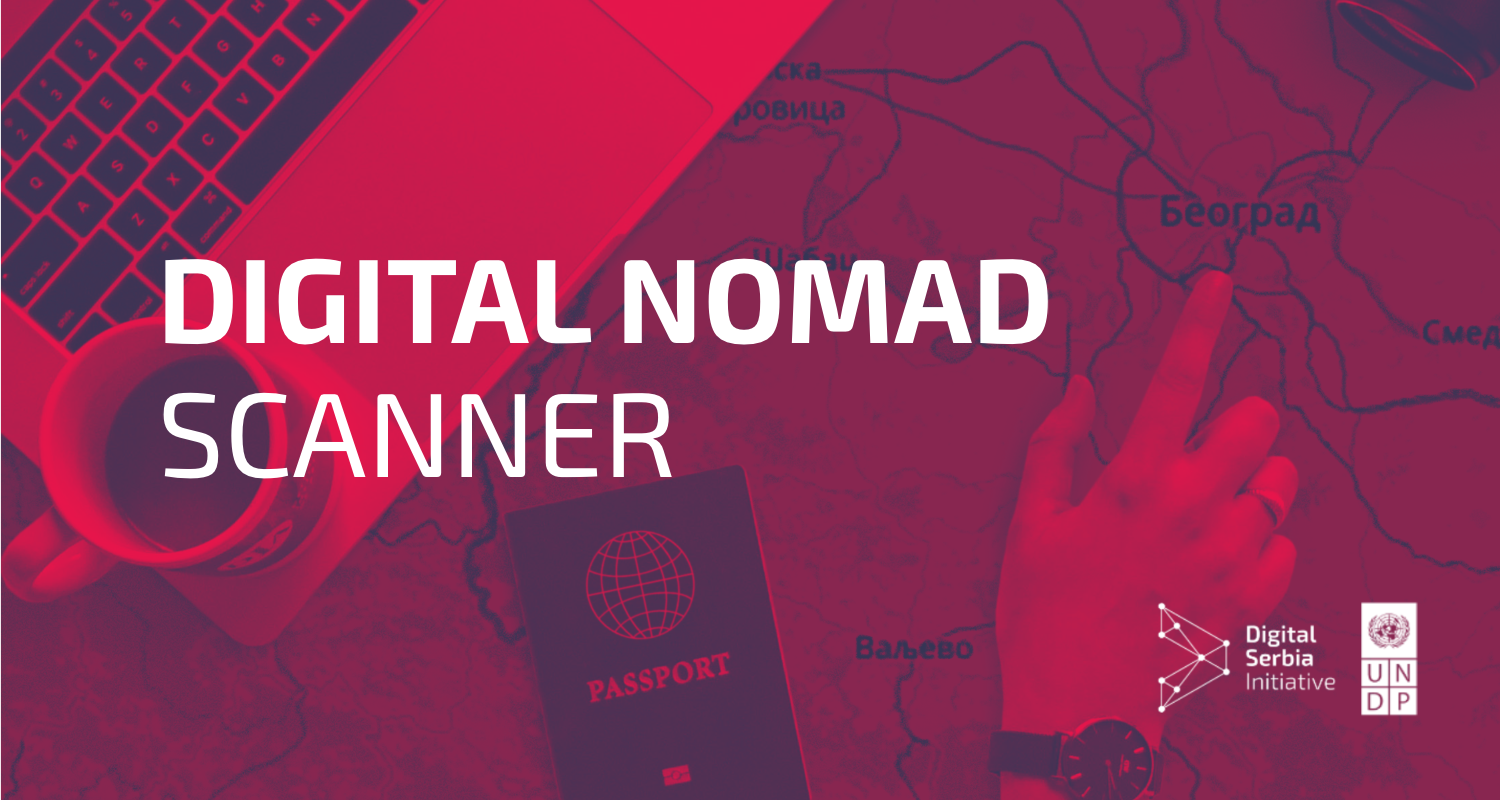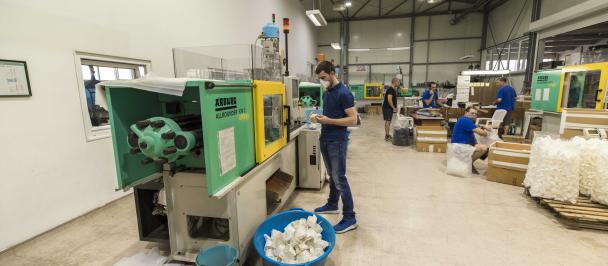Belgrade, 11th September – The “Digital Serbia” Initiative and the United Nations Development Programme (UNDP) Accelerator Lab yesterday presented the Digital Nomad Scanner, an analysis of digital professionals from abroad who have decided to spend a certain period of time living and working in Belgrade. As the way of life that members of this group of digital workers lead is often categorised within the framework of one of the coming trends, the focus of this analysis is aimed at the questions of who digital nomads living and working in Belgrade are, how we can induce them to stay here longer and motivate them to establish firmer connections with the market to be found in Serbia.
As the actual phrase implies, digital nomads are people who chose where they are going to live and often change the location of their place of residence, and as for the jobs that they perform, they are increasingly numerous and cover different areas – programming, digital marketing, games of chance, blockchain, writing, e-commerce, artificial intelligence, graphic design… In an attempt to find out the answer to the question of what the most important factors taken into consideration when choosing a place for (temporarily) living and working in are, the Digital Nomad Scanner showed that those include a dependable Internet connection, low living expenses, as well as culture, climate, the state of civil liberties, transportation, language, air quality, how distant beaches or mountains are.
In the analysis, it is pointed out that, in the first half of the current year, at the Nomad List website, one of the best-known Internet locations for assessing destinations for digital nomads, Belgrade was ranked seventh in Europe by the site users. Such a ranking, in a group of cities that includes Lisbon and Berlin, is indicative of our capital’s potential for being a place that attracts and keeps this category of workers.
“Even though, for the time being, there can be no talk about a great number of digital nomads, from their experiences we can learn how to view Belgrade in a different way and what to invest in with a view to improving the working conditions for domestic digital workers as well”, Kristina Jazinka Nikolić of the UNDP Accelerator Lab pointed out speaking of digital nomads who visit our capital city, adding:
“Our research was aimed at this particular group of IT professionals, bearing in mind that international acquaintances are becoming potential business contacts, that domestic firms are getting the opportunity to learn how to work with foreigners and that some of them may decide to open their firms here. In addition to that, although for the time being we are talking about a small group of people, they possess a serious potential for making society more open and diverse, which is what tends to make a city (and it is cities that are competing here, not states) more attractive for other people as well.”
Insights gained from the report also testify to the fact that the capital of our country is particularly attractive because it possesses the characteristics of a world-class metropolis, and in addition to that, it is one of the most accessible European capitals. Apart from this, digital nomads most often point out as its advantages the facts that in Belgrade they have access to high-speed, stable Internet services, an interesting start-up scene and spaces suitable for joint work, that it is outside the Schengen zone, that it is easy to move about town on foot, that its people treat you cordially and speak good English. Among the indicators that our capital scores less well on are its excessively cold autumns and winters, its rather rigid bureaucracy, poor air quality, lack of contents that tend to gather nomads, the degree of tolerance manifested towards different attitudes and the fact that smoking is allowed in many closed public spaces.
As the influx of digital nomads is a significant source of knowledge and linking with the world, of positioning Belgrade as a city that understands the needs of this type of workers, it would lead to a broadening of the network of digital professionals who bring much-needed skills into the domestic ecosystem, as a result of which new opportunities would open up and the reputation of our capital city would be enhanced.
“The way of working that presupposes being independent of the location and being in a position to use online tools is characteristic of digital nomads. Apart from the fact that this kind of lifestyle is convenient for such individuals, it also favours the development of successful start-up ecosystems. This is due to the fact that digital nomads, wherever they come, bring with them new knowledge and experiences, thus enriching the technological scene and giving it an international character. That is why it was of importance to us to map this segment and see how we could encourage them to share their experiences with local experts and thus become a useful addition to the domestic digital scene”, explained Nebojša Đurđević, the Director of the “Digital Serbia” Initiative.
Still, although according to the findings from the report digital nomads stay in Belgrade longer than they do in Barcelona or London, fewer of them by far visit the capital of our country. This fact leaves room for increasing the number of nomads coming to Belgrade through better promotion, changing the general perception of our capital city, putting in efforts on the part of local IT organisations to involve this kind of workers in their events, and also through developing policies aimed at creating a more favourable environment for foreigners who come to work from Serbia.
All the data gathered in the course of this research were analysed by the “Digital Serbia” Initiative, with the support of the United Nations Development Programme (UNDP). The report in its entirety is available at the following link

 Locations
Locations

